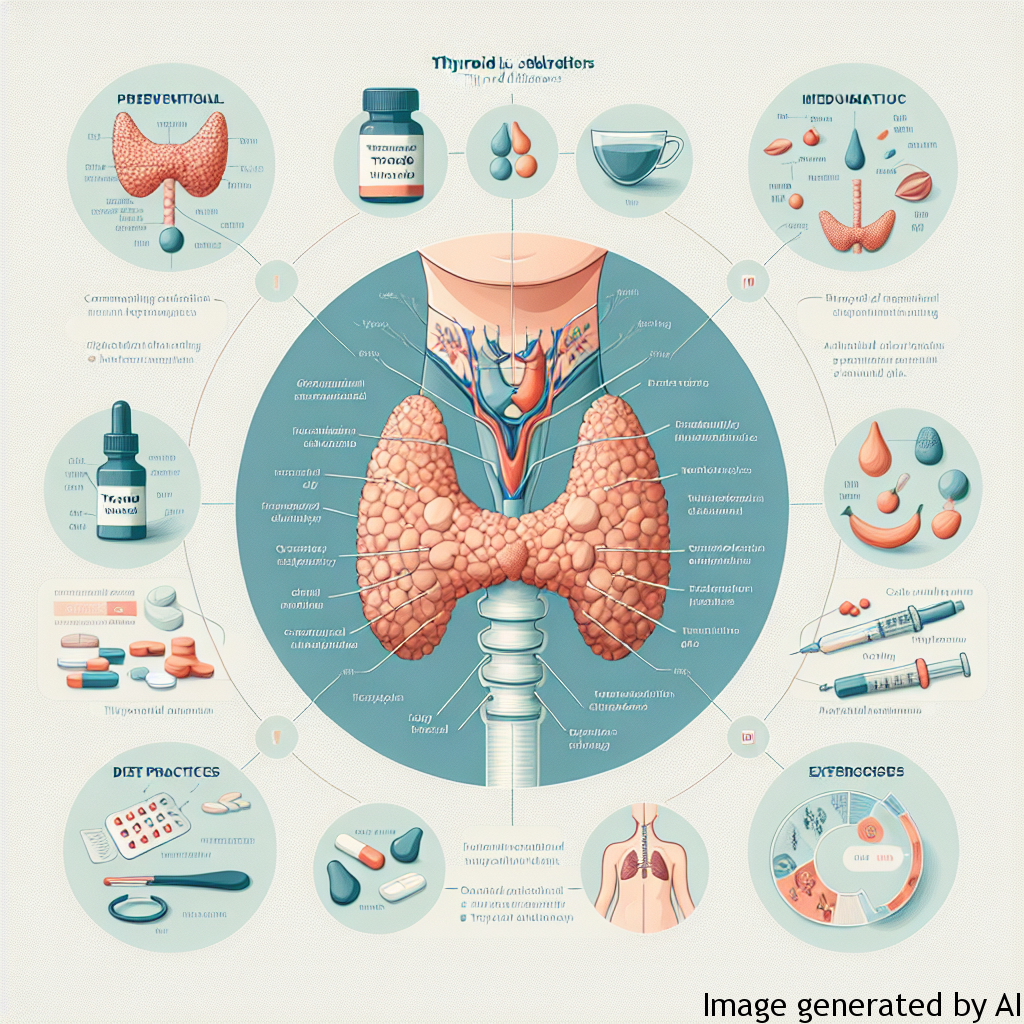Introduction
Thyroid disorders are some of the most prevalent diseases affecting the endocrine system. They are characterized by abnormalities in the thyroid gland resulting in overproduction (hyperthyroidism) or underproduction (hypothyroidism) of thyroid hormones. These states may lead to a variety of clinical symptoms and complications. While medical interventions are effective in managing the condition, prevention and early detection are key to mitigating adverse health outcomes. This article aims to explore the prevention and treatment of thyroid disorders.
Types of Thyroid Disorders and Their Symptoms
Thyroid disorders manifest in various forms, with the most common being Graves disease, Hashimoto’s thyroiditis, and thyroid nodules.
Graves’ Disease
This autoimmune hyperthyroidism condition is characterized by an overactive thyroid gland that produces excessive hormones. Symptoms include rapid heart rate, tremors, unexplained weight loss, and bulging eyes.
Hashimoto’s Thyroiditis
An autoimmune hypothyroidism condition, Hashimoto’s is characterized by an underactive thyroid. Symptoms include fatigue, depression, sensitivity to cold, and weight gain.
Thyroid Nodules
These are abnormal growths or lumps in the thyroid gland. They can be symptomatic or asymptomatic, potentially causing difficulty breathing or swallowing, hoarseness, and hyperthyroidism symptoms.
Prevention of Thyroid Disorders
While the exact causes of thyroid disease are unknown, certain factors such as radiation exposure, certain medicines, and genetic predisposition are linked to an increased risk. Prevention strategies largely revolve around lifestyle modification including:
- A balanced diet rich in iodine to support thyroid function.
- Regular exercise to help maintain a healthy weight and reduce the risk of diseases like hypothyroidism.
- Reducing stress levels as chronic stress can disrupt the balance of thyroid hormones.
- Avoiding excessive consumption of goitrogens, substances that can interfere with thyroid function, found in foods like soy and cabbage.
Treatment of Thyroid Disorders
Treatment strategies for thyroid disorders depend on the type and severity of the condition. They include:
- Medications: For hypothyroidism, synthetic thyroid hormone levothyroxine is commonly prescribed. Hyperthyroidism treatments include anti-thyroid medications that reduce symptoms and prevent the thyroid from producing too many hormones.
- Radiation Therapy: Used primarily for Graves’ disease, this therapy uses radioactive iodine to destroy part of the thyroid gland.
- Surgery: In cases of large thyroid nodules, goiters, or cancer, removing part or all the thyroid gland may be necessary.
Conclusion
Thyroid disorders, while prevalent, can be managed with appropriate prevention strategies and treatments. Recognizing the symptoms and seeking an early diagnosis is crucial to preventing complications and maintaining a normal life. As scientific understanding advances, better preventive techniques and treatments will likely emerge, reducing the impact of these disorders further. Always consult with healthcare professionals for personalized advice regarding the prevention and management of thyroid disorders.

